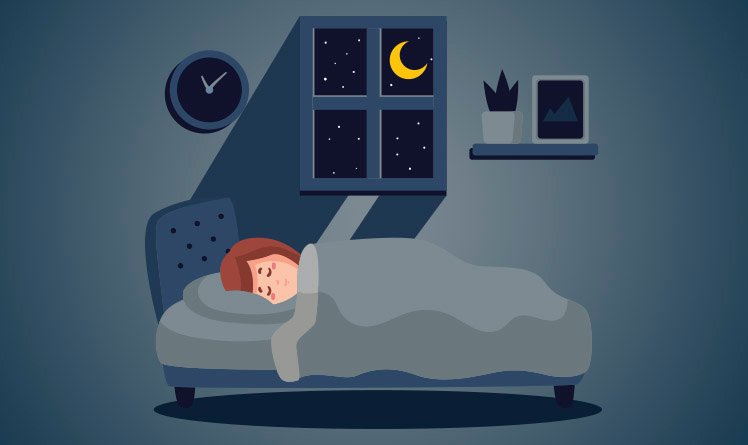What is the circadian rhythm and how does sleep affect productivity?

|
Getting your Trinity Audio player ready...
|
Have you ever woken up feeling totally refreshed and ready to take on the world, while other days you feel like you can barely get out of bed? The difference may not just be in the amount of sleep you get, but in something deeper: your circadian rhythm. This biological rhythm, which operates on a roughly 24-hour cycle, is responsible for regulating many processes in our bodies, including sleep and wakefulness.
Understanding the circadian rhythm is essential for anyone looking to improve their health, sleep quality, and, consequently, productivity in their daily lives. In this article, we’ll explore what the circadian rhythm is, how it works, and how you can use it to your advantage to maximize your performance at work and in your personal life. If you’ve ever wondered how sleep influences your ability to be productive, this guide will give you the answers you need.
What is the circadian cycle?
Have you ever wondered why you feel sleepy at night and full of energy in the morning? It’s due to the circadian rhythm, the internal biological clock that regulates many of our physiological processes, including sleep and wakefulness.
The circadian rhythm is a natural 24-hour rhythm that influences a number of biological functions in our bodies, such as hormone release, body temperature and metabolism. It is essential for maintaining balance and overall health, but its importance is often underestimated.
How does the circadian cycle work?
The internal biological clock
At the heart of the circadian rhythm is the body clock, a structure located in the hypothalamus of the brain called the suprachiasmatic nucleus (SCN). This body clock receives signals from the environment, such as light and dark, to synchronize bodily functions throughout the day.
In this sense, the SCN regulates the production of melatonin, a hormone that induces sleep. Thus, during the night, when it is dark, melatonin production increases, preparing the body for sleep. On the other hand, daylight reduces melatonin production, keeping us alert and awake.
The influence of light and dark
Natural light is the main regulator of the circadian rhythm. So when our eyes detect light, especially blue light from the sun, they send signals to the SCN to decrease melatonin production. This explains why exposure to light at night, such as using electronic devices, can disrupt sleep.
On the other hand, darkness signals the body that it’s time to rest, increasing the production of melatonin. This balance between light and darkness is crucial to keeping our circadian rhythm in sync.
Lifestyle and habits
Our daily habits also play a crucial role in our circadian rhythm. Excessive caffeine consumption, irregular sleep schedules, and lack of physical activity can all throw our body clocks off track. So try to establish a consistent sleep routine and avoid stimulants a few hours before bed to help keep your circadian rhythm in check.
Technology and the circadian cycle
Technology, although it has brought many benefits, can also be a villain for our circadian rhythm. Using electronic devices before bed emits blue light, which can inhibit the production of melatonin. In addition, constant connectivity can lead to a state of alertness that makes it difficult to relax and get a good night's sleep.
The relationship between circadian rhythm and sleep
Sleep plays a key role in regulating your circadian rhythm. During sleep, your body performs a number of essential functions, including cell repair, memory consolidation, and stress hormone regulation. When we sleep consistently and at regular times, our circadian rhythm stays in tune, promoting better physical and mental well-being.
However, when there are sleep disturbances, such as insomnia or irregular sleep, the circadian cycle can become destabilized, leading to a series of problems, such as fatigue, irritability and difficulty concentrating.
The relationship between sleep and productivity
Sleep is one of the pillars of productivity. Studies show that lack of sleep can lead to significant cognitive deficits, affecting memory, attention, and decision-making. Imagine trying to solve a complicated puzzle with missing pieces; that’s how our brains work when we don’t get enough rest. What’s more, the quality of sleep is just as important as the quantity. Thus, fragmented sleep can result in a foggy mental state, making it difficult to focus on important tasks.
Productivity at work is also closely linked to your circadian rhythm. When you align your activities with your body’s natural rhythms, you’re more likely to be productive. For example, many people have a peak energy level in the morning, while others may feel more alert in the afternoon. Knowing your own circadian rhythm can help you schedule challenging tasks for times when you’re most alert.
Additionally, people who work night shifts or who frequently travel between different time zones, for example, often experience circadian dysregulation, which can result in decreased attention, memory lapses, and an increased risk of errors at work.
Consequences of a dysregulated circadian cycle
A dysregulated circadian rhythm can have serious health consequences. Studies show that dysregulated circadian rhythms are associated with a number of health problems, including obesity, type 2 diabetes, cardiovascular disease, and mood disorders such as depression and anxiety.
Additionally, chronic circadian dysregulation can weaken the immune system, making the body more susceptible to infections and other diseases. Heart health can also be affected, since blood pressure and heart rate are regulated by the circadian rhythm.
Lack of restful sleep can lead to a constant state of fatigue, compromising the ability to perform daily tasks.
How to Align Your Circadian Cycle to Improve Sleep and Productivity
Tips for regulating the circadian cycle
Aligning your circadian rhythm is crucial to ensuring quality sleep and, consequently, improving productivity. Some simple strategies can help regulate your circadian rhythm:
- Exposure to natural light: Spend more time outdoors during the day and avoid artificial light at night.
- Maintain a consistent sleep schedule: Try to go to bed and wake up at the same time every day, including weekends.
- Create a sleep-friendly environment: Keep your bedroom dark, cool, and quiet to promote restful sleep.
- Limit the use of electronic devices before bed: The blue light emitted by smartphones and tablets can interfere with melatonin production.
Morning and Night Routines
Establishing morning and evening routines can be a powerful ally in maintaining a healthy circadian rhythm. So, start your day with activities that promote awakening, such as exposure to sunlight, stretching or light exercise, and a balanced breakfast.
In the evening, create a relaxation ritual that includes calming activities, such as reading, meditating, or taking a warm bath. Avoid stimulating activities, such as watching TV or working late, to allow your body to begin to wind down naturally.
Mindfulness and sleep
The practice of mindfulness plays an important role in improving sleep quality by promoting a state of mind that is calm and present in the moment. Cultivating mindfulness reduces stress and anxiety levels, which are often the main culprits behind insomnia and other sleep disorders. In this way, mindfulness helps regulate the body’s response to stress, reducing the mental overactivity that often prevents the relaxation needed to fall asleep. Additionally, by increasing awareness of thought patterns and emotions, mindfulness allows you to develop a healthier relationship with sleep, creating a mental environment that is more conducive to rest and recovery.
The role of diet and exercise
Food and physical exercise also play important roles in regulating the circadian rhythm. Therefore, eating at regular times and avoiding heavy or caffeine-rich meals close to bedtime can help keep the circadian rhythm in line.
Regular physical exercise, especially in the morning or early afternoon, can reinforce your body clock signals and improve your sleep quality.
Exercise, even at night. The important thing is to establish a routine that brings you physical and mental well-being.
Research on the circadian cycle
As science advances, our understanding of the circadian rhythm and its relationship to health and productivity continues to expand. New research is exploring how personalizing the circadian rhythm, based on individual factors such as genetics and lifestyle, can optimize health and performance.
Furthermore, growing awareness of the importance of a regulated circadian rhythm is leading companies to rethink their work practices. There is a growing trend towards more flexible working hours and environments that respect employees’ natural biological rhythms, with the aim of increasing productivity and overall well-being.
In short…
Understanding the circadian rhythm and its influence on sleep and productivity is essential to achieving a healthy balance between well-being and performance. In short, by adopting habits that respect and promote a regulated circadian rhythm, you not only improve the quality of your sleep, but also optimize your ability to be productive, creative and healthy.
Small changes to your daily routine can have a profound impact, helping you align your internal biological clock and thus achieve a more balanced and satisfying life.
Recommended reading:


Image: Freepik

Marcel Castilho is an expert in neuromarketing, neuroscience, mindfulness and positive psychology. In addition to being an advertiser, he also has a Master's degree in NLP – Neurolinguistic Programming. As the owner and founder of the communications agency VeroCom and also of the digital agency Vero Contents, he has been studying human behavior for over 30 years.

